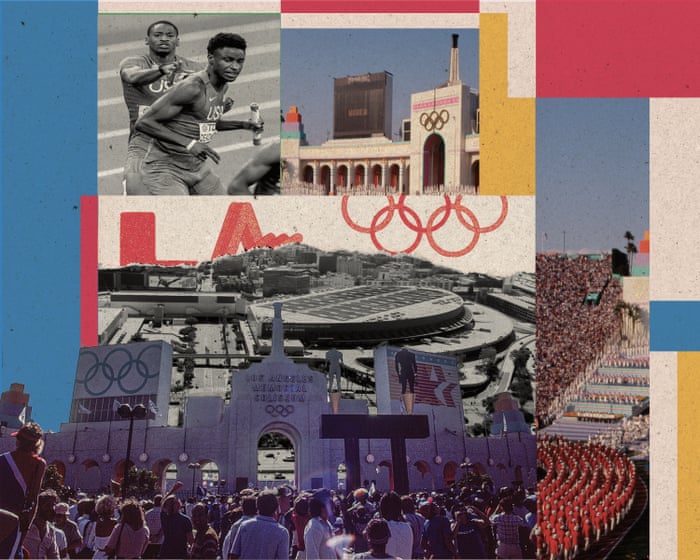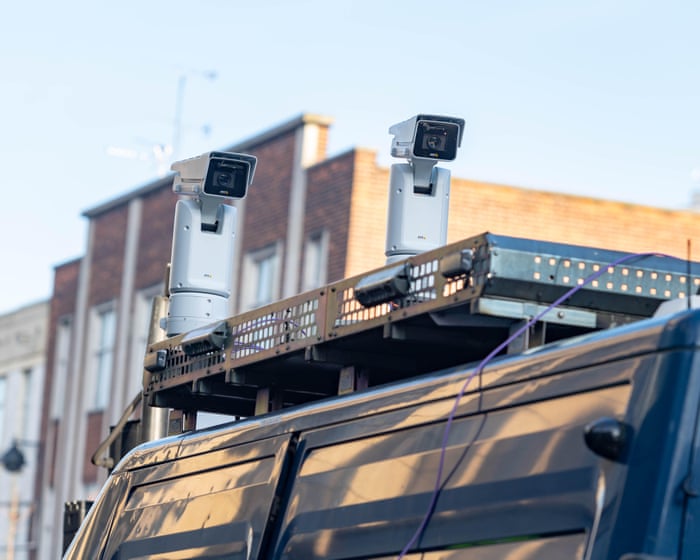Hosting the Summer Olympics was once a dream for many global cities, but now it’s often viewed as a nightmare. The costs have soared to $10 billion or more in recent years, leading to the displacement of residents, environmental damage, and the risk of massive debt and abandoned stadiums, as seen in Rio de Janeiro and Athens.
Since Los Angeles won the bid for the 2028 Summer Games a decade ago, city leaders have promised a different approach. They aim to deliver world-class Olympics and Paralympics in the city’s ideal sunny weather while minimizing costs, environmental harm, and disruption to communities.
However, this challenge has become much harder. In 2025, Los Angeles has been in crisis. Hollywood productions in the area have sharply declined, shaking the local economy. In January, devastating wildfires, worsened by climate change, destroyed 16,000 homes and buildings and claimed 31 lives. By June, aggressive federal immigration raids in Southern California left many Latino residents fearing arrest. In response to protests, Donald Trump deployed the National Guard and U.S. Marines, and his administration has repeatedly attacked California Governor Gavin Newsom and Los Angeles Mayor Karen Bass.
With so many urgent environmental and political issues, some residents are questioning whether investing heavily in the 2028 Olympics is wise.
City and state leaders remain committed, emphasizing that Los Angeles—home to great storytellers, Venice Beach volleyball, and Sunset Boulevard’s palm trees—is ready and eager to host the Games.
With less than three years left, experts note the city has set ambitious goals and faces significant hurdles. Yet, progress in some areas raises the possibility of breaking even, potentially setting a new standard for a smooth and cost-effective Olympics—unless Trump interferes.
Break Even or Break Down?
Recent hosts like Brazil in 2016 and Greece in 2004 were left with heavy debt and doubts about the value of hosting. In contrast, Los Angeles aims to replicate the success of its 1984 Olympics, which turned a $223 million profit and set a model for financial caution. This is critical now, as the city faces a nearly $1 billion budget deficit and more economic challenges ahead.
Although the current budget for the 2028 Games has risen to nearly $7.15 billion, organizers plan to cover it through corporate and licensing deals, ticket sales, and contributions from the International Olympic Committee. If costs exceed the budget or revenue falls short, Los Angeles and California taxpayers will bear the burden. The city’s contract with the IOC requires it to cover the first $270 million in overruns, the state the next $270 million, and local taxpayers the rest.
Organizers of the privately funded LA 2028 committee report they are on track to secure the $2.5 billion in corporate sponsorships needed for their plan to succeed.An LA28 spokesperson announced that they have already formed 12 new partnerships this year, with more expected, and are confident about nearing $2 billion in revenue by year’s end, with continued growth anticipated.
To remain debt-free, Los Angeles plans to minimize new construction, relying instead on its existing sports and hospitality facilities. The city’s bid emphasized its array of ready venues, such as SoFi Stadium (home to the Super Bowl), Dodger Stadium, and the Los Angeles Coliseum at USC, which hosted the 1932 Olympics. Even a Universal Studios backlot, famous for “Back to the Future,” will be used for squash, while San Clemente’s beaches will host surfing events.
USC highlighted that the 2028 Games will be the first in Olympic history without any new permanent venues. Unlike Paris, which built a new Olympic Village in a northern low-income area, LA will house athletes at UCLA and media at USC. The city’s extensive hotel, tourism, and theme park infrastructure is already equipped to handle millions of visitors. Experts, including economist Andrew Zimbalist, note that this puts Los Angeles in a stronger financial position than many past hosts, with a good chance of breaking even.
During the 2024 Paris Olympics, Mayor Bass surprised many by announcing LA’s goal for a “no-car games,” given the city’s notorious traffic. Initially, the plan aimed for all ticketed spectators to use public transport or dedicated shuttles. However, with three years to go, the focus has shifted to a “transit-first Games” that also encourages zero-emission vehicles. The mayor’s office is working to enhance public transit, including electrifying buses.
Recent sponsors like Uber and electric air taxi company Archer will support this vision, with Uber as the official rideshare and delivery partner and Archer transporting VIPs and fans. A spokesperson stated that LA28 is committed to efficient transit for athletes and fans while keeping the city moving, and the sustainability plan reinforces this by not providing spectator parking at or near venues.The report highlighted that this applies to most venues in the Los Angeles area.
Image: Vehicles on the 110 freeway in downtown Los Angeles, California, October 17, 2023. Photo: Bloomberg/Getty Images
At the same time, the city has achieved progress with significant new transit projects, such as finally extending its metro line to Los Angeles International Airport.
Joshua Schank, former chief innovation officer for LA Metro and now a transportation consultant, stated, “The bulk of the investment is aimed at the long-term health of transportation in LA.” He acknowledged that delays are common in major infrastructure projects but emphasized that setting ambitious goals is positive.
Schank believes that transit advocates view the push for a transit-focused Olympics as a major victory, regardless of the outcome. He noted that the event offers a chance for visitors to experience Los Angeles in a new way and, if public transit performs well, it could boost future support for such systems.
A significant challenge is securing funding for approximately 2,700 energy-efficient buses and the drivers needed, a key component of the Olympic transit plan. Buses played a crucial role in the smooth operation of the 1984 Games. The city is seeking $2 billion from the Department of Transportation as part of a larger $3.2 billion federal request. A spokesperson for LA28 pointed out that the federal government supported additional bus services for the 1996 and 2002 U.S. Olympic Games.
While former President Trump’s Transportation Secretary, Sean Duffy, expressed optimism in a June letter, an LA Metro spokesperson reported no further updates from the department or administration since then.
Daniel Durbin, director of the Annenberg Institute of Sports, Media & Society at USC, expects political pressure from Trump but ultimately believes federal funding and support will materialize, though not without intense political disputes beforehand.
Another concern for organizers is the impact on LA’s most vulnerable residents. Host cities often aim to appear prosperous and appealing to international visitors, sometimes by concealing or demolishing struggling neighborhoods. During the 1984 Olympics, LAPD officials discussed efforts to “sanitize” the city by hiding homeless populations.
Economist Andrew Zimbalist, author of several books on the Olympics, cited examples from Rio, where 77,000 favela residents were displaced, and Atlanta in 1996, where tens of thousands were forced out of central city neighborhoods—primarily minority communities—to make way for the Olympic Village. He added that host cities often build walls to shield poverty from visitors and television cameras.
For the 2028 Games, Los Angeles has committed to avoiding resident displacement to impress tourists. However, activists and community members remain skeptical, especially regarding the treatment of unhoused individuals, given recent precedents.Activists voiced concerns during the 2022 Super Bowl, accusing Los Angeles officials of trying to “clear the poor from the streets” after city workers dismantled a homeless encampment near SoFi Stadium ahead of the event.
Los Angeles has also committed to hosting environmentally friendly games, despite the significant carbon footprint from spectators flying in. The LA 2028 committee aims to surpass the carbon reductions of the 2024 Paris Games by cutting the carbon footprint an additional 10%, as outlined in a sustainability plan released this summer.
With the Paralympics heading to LA, questions remain about whether the US has done enough to ensure their success.
Some environmental advocates hope the 2028 Olympics can serve as leverage to address urgent issues in Los Angeles, such as the scarcity of trees and shade in lower-income neighborhoods. The Shade LA initiative, a collaboration between UCLA and public agencies, seeks to improve this by the time of the Games. However, the extent of the impact is uncertain. Marcos Trinidad, a senior forestry director at TreePeople, noted in August that there’s a lack of firm commitment from the city and Olympic organizers—such as specific numbers or budgets—to drive change.
Then there’s the factor of Trump, whose strong desire to host the Olympics towards the end of his potential second term is matched by the unpredictability he introduces to the planning. From his broad travel ban and public disputes with LA officials to his administration’s challenges to free speech, the president poses numerous obstacles to a seamless event.
Andrew Zimbalist pointed out that even if Trump doesn’t directly harm the LA 2028 efforts, his actions have fostered international animosity and disgust, potentially deterring visitors who oppose his government. This has already led to a noticeable decline in US tourism, posing another significant threat.
Despite this, media expert Durbin believes Trump will likely strive to ensure the Games’ success, as someone in his position wouldn’t want his legacy marred by a failed Olympics.
Frequently Asked Questions
Of course Here is a list of helpful and concise FAQs about Los Angeles hosting the Olympics without overspending or environmental harm
General Beginner Questions
1 Hasnt LA hosted the Olympics before Why is that important
Yes LA hosted the Games in 1932 and 1984 This is crucial because LA is the only city to have made a significant profit from the Olympics proving its possible to be financially successful
2 Whats the main plan to avoid overspending
The main strategy is to use existing or already planned venues Instead of building expensive new stadiums from scratch LA will use worldclass places like SoFi Stadium the Coliseum and USC UCLA facilities
3 How can a huge event like the Olympics not harm the environment
The plan focuses on sustainability using public transit making venues energyefficient avoiding new construction on natural land and having a strict zerowaste policy to reduce landfill trash
4 Will my taxes go up to pay for the Games
The LA 2028 plan is privately funded through sponsorships ticket sales and broadcasting rights The organizers have pledged that no public tax dollars will be used for the construction or operation of the Games
5 What does a zerowaste Olympics mean
It means that at least 95 of all waste generated during the Games will be diverted from landfills through recycling composting and reuse programs Youll see separate bins for trash recyclables and compost everywhere
Advanced Practical Questions
6 What specific environmental promises has LA 2028 made
LA 2028 has committed to several key goals including
Carbon Neutral Offsetting all greenhouse gas emissions from the Games
100 Renewable Energy Powering all venues and operations with clean energy
Water Neutral Saving and returning more water to the system than the Games use
ZeroWaste Drastically reducing landfill waste
7 Traffic is already bad in LA Wont the Olympics make it a nightmare
The plan heavily relies on LAs expanding public transit system and temporary Olympic Lanes to move athletes and officials efficiently The goal is to encourage spectators to use public transport walk or bike which could actually serve as a realworld test for



